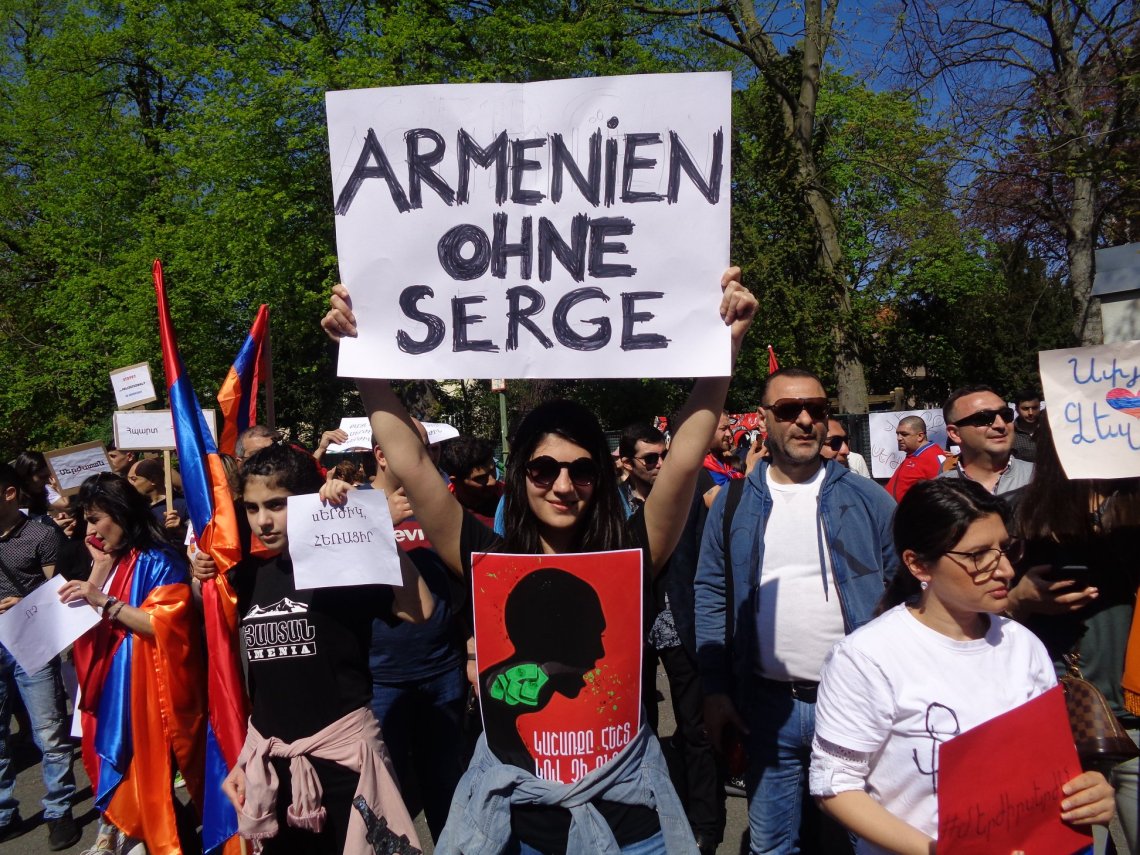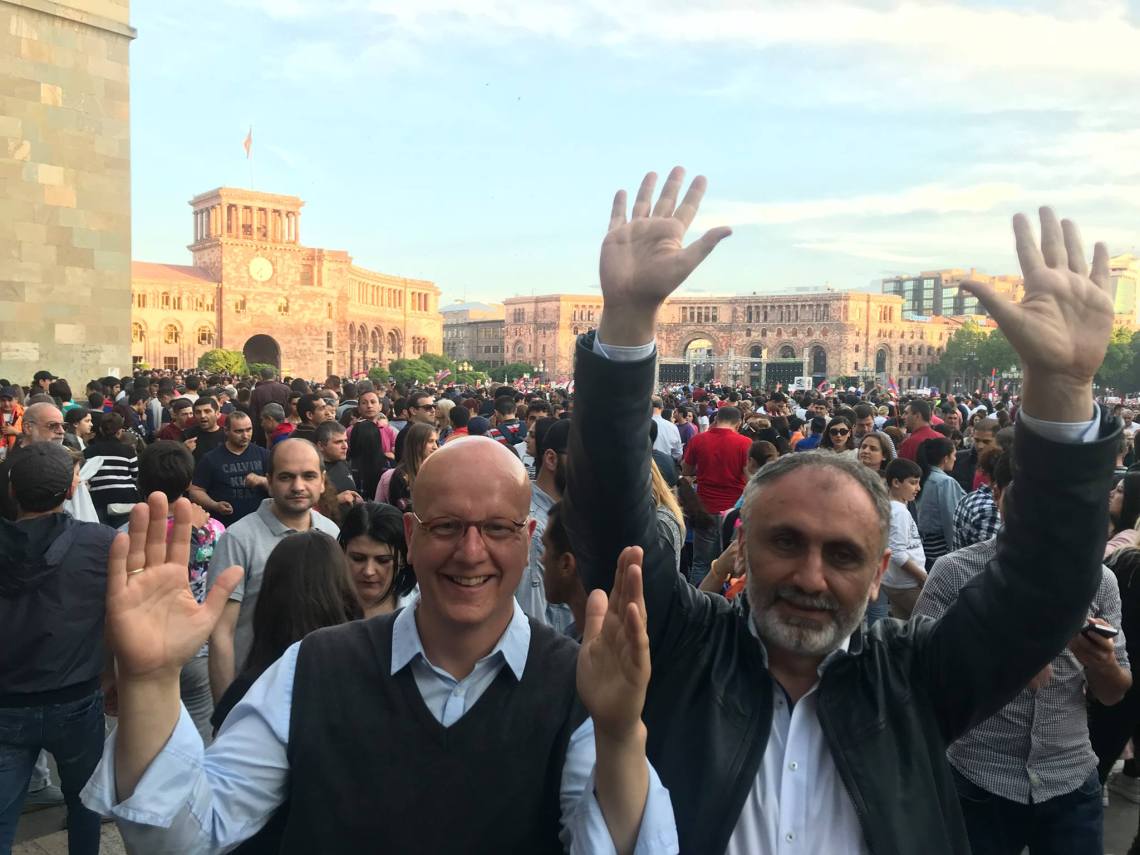With more than eight million Armenians living outside its borders compared to about three million living inside the country, Armenia is one the few nations that even has a Ministry of Diaspora.
But the involvement of diaspora to the internal problems has always been a huge conflict. Some argue that Armenia is stable due to the diaspora, while others insist that Armenia’s problems can be solved only by the people currently living in the country.
A new wave of discussion began during the April Revolution, when Armenians living in different cities of the world organized protests in solidarity.

Naira Harutyunyan, 30, expert in global logistics and supply chain management, was living in Hamburg, Germany when protests in Armenia started. Harutyunyan went to Berlin to join the protests demanding that ex-prime minister Serzh Sargsyan resign.
“Those who left the country during the last 20 years have been disappointed not only with the bad social situation, but also from the bad (political) atmosphere that was dominant for years,” said Harutyunyan. She listed unfair judiciary, corrupt systems, economic monopoly and election fraud as reasons people lost their hope for the future and started looking for it in foreign countries.
Harutyunyan said when those living in Armenia could stand up for their rights, the diaspora could not ignore it. “This included me,” she said. “During this important time I had to stand by my nation, even though I was physically far from the motherland.”
She has now been back in Armenia for several months. “The revolution gave me hope and belief for my future, and most importantly it brought me back to my roots,” she said.
“I think the initiatives of Diaspora should be welcomed. The potential of diaspora is indispensable.”

Armen Martirosyan, 47, the chief executive officer of Antares Media Holding, has a different opinion. “I am interested in people who stay here, regardless of ethnicity. The Yezidis, Assyrians, Russians, Kurds, Greeks who stayed here are my brothers. Goodbye to those who left …” wrote Martirosyan on his Facebook page several months before the protests against Sargsyan started.
In an interview with Spotlight, Martirosyan said his opinion is unchanged: “The change of power is only the business of people living inside the country. They are the ones who can be harmed, they are the ones who feel everything on their own skin, and they are the ones to go to the army.”
Martirosyan said people who say they left Armenia because of the previous authorities should already be returning home. “But they did not come back,” he said. “This means Sargsyan was not their reason.”


Tsov Alize Banuchyan, a 29-year-old writer and art critic, said she never felt as if she left Armenia. “Home is the only place where you don’t come back, because you never actually leave,” she said. “I can live in New York, in Tokyo, on the planet Mars, and I can leave any city in the world. But I will never leave Yerevan, no matter how pathetic that might sound.”
In 2010 Banuchyan went to study in Montpelier, France. Then she moved to Paris to get a master’s degree. “Years just pass by,” she said, “You start working, finish some projects, and you don’t even notice that a huge part of your life has been spent abroad.”
Banuchyan said that when she watched Sargsyan reminding about 1st March 2008 during his meeting with Pashinyan, she was shaking with anger. “2008 passed in front of my eyes: my friends, our fathers in prison… I decided to leave everything and come back, to be near my friends and family.”
By the time Banuchyan arrived, Sargsyan had resigned. But protesters were still blocking Yerevan streets, and parliament had not yet chosen Pashinyan to be the new prime minister.
“The revolution atmosphere was still alive, and I am happy that I had the chance to see the madness of Yerevan (in a good way),” Banuchyan said.
Banuchyan does not think diaspora can make big changes, but she does believe diaspora can really motivate those living in Armenia. She said the victory does not need to be localized. “Why should anyone living abroad feel less worthy of this victory?” she asks. “Just because he/she is not a charity foundation or is not Charles Aznavour?”
She said the revolution was everyone’s victory as one more country in the world moves toward democracy.
The discussions continue: those abroad either encouraging or criticizing the new authorities while deciding whether to move back, and those at home wondering if this was a victory for the country of Armenia or for all Armenians everywhere.